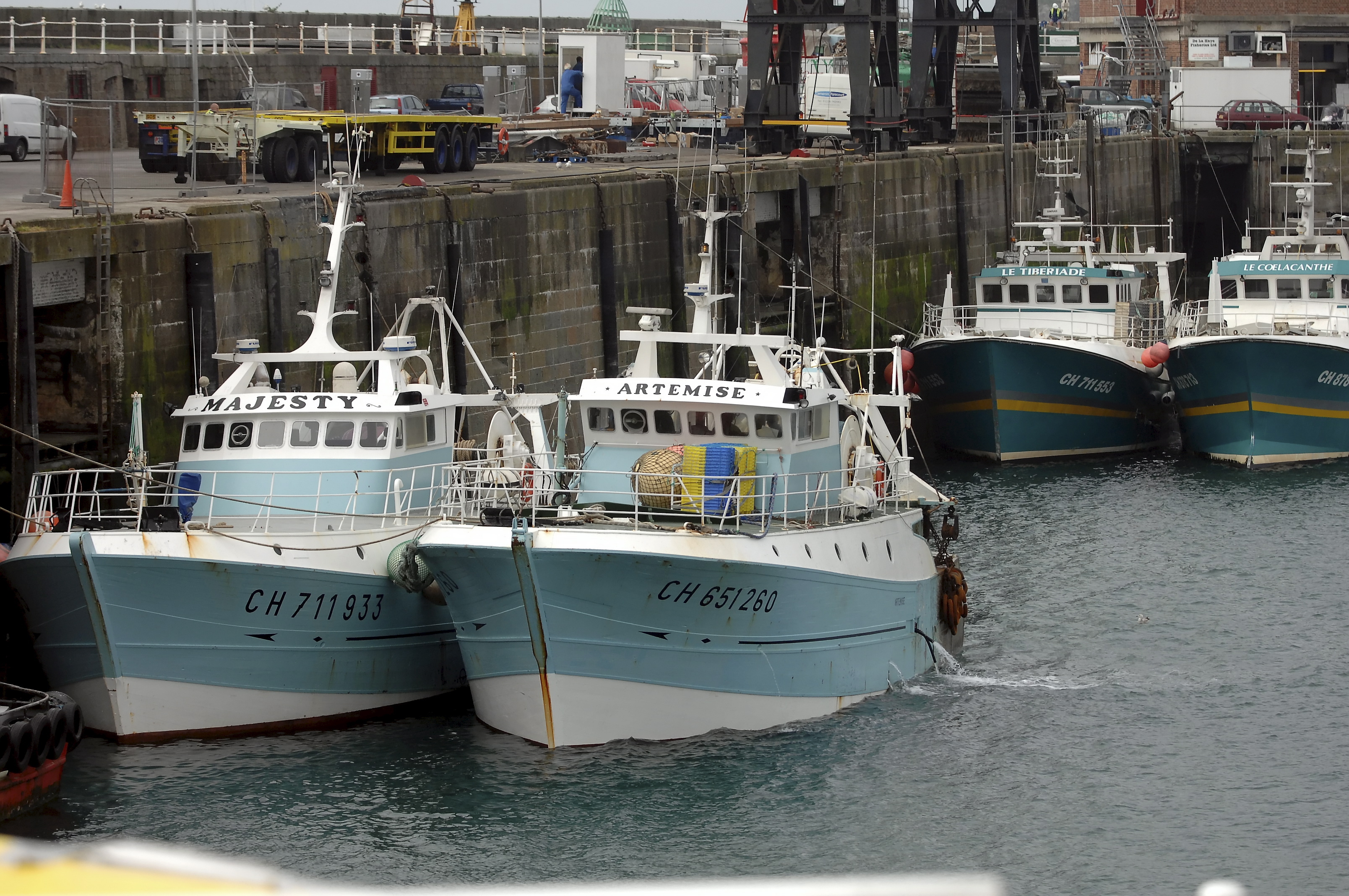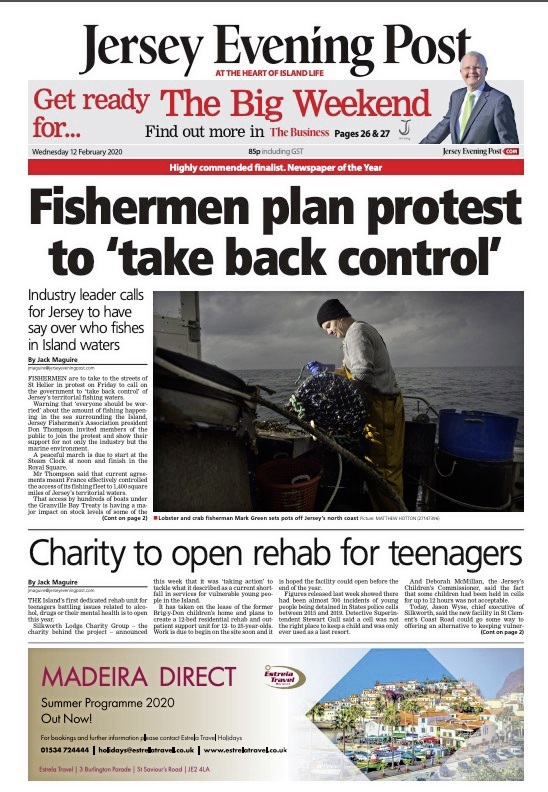Warning that ‘everyone should be worried’ about the amount of fishing happening in the sea surrounding the Island, Jersey Fishermen’s Association president Don Thompson invited members of the public to join the protest and show their support for not only the industry but the marine environment.
A peaceful march is due to start at the Steam Clock at noon and finish in the Royal Square.
Mr Thompson said that current agreements meant France effectively controlled the access of its fishing fleet to 1,400 square miles of Jersey’s territorial waters.
That access by hundreds of boats under the Granville Bay Treaty is having a major impact on stock levels of some of the Island’s flagship species, he added.
Catches of lobster have plummeted by almost 50% in the past five years from 268,000 tonnes in 2014 to 140,000 tonnes last year. Restrictions on the size of brown crab that can be landed were also introduced last year in a bid to address the ‘steep’ decline in stocks.
‘The lobster stock has absolutely fallen off a cliff edge – there is almost a collapse of the entire stock,’ Mr Thompson said.
He added that fishermen wanted to see the Granville Bay Treaty overhauled and power put back in Jersey’s hands. Under the agreement, French and Jersey fishermen have the right to fish freely within the Bay of Granville and permits for doing so are issued by the French for their boats and Jersey for its vessels. The only restrictions for French boats is a three-mile limit around Jersey’s coastline.
However, Mr Thompson wants Jersey to have the power to control who fishes in its waters.
The UK’s departure from the EU on 31 January ended the London Fisheries Convention, which allowed French fishermen access to Guernsey waters. As such, French vessels now have to get a special document, which is issued by Guernsey and which also has to be authorised in France. The changes have effectively brought to an end – in the short term, at least – the rights of some French boats to access Sarnian waters. The Granville Bay Treaty is unaffected by Brexit.
Mr Thomspon said: ‘The protest actually goes beyond fishing. It’s important to understand that we have 1,400 square miles of territorial seas, all of which lies outside the three-mile zone but within the Bay of Granville, so is controlled by the French in terms of access to it by French boats.
‘The treaty has just not worked. This concerns everyone – not just fishermen. Everyone should be worried about the amount of fishing going on out there, so this is an invitation to the public to join us and call on Jersey to take back control of its territorial seas.’
He added: ‘We do not want to throw the French out. Government understands us pretty well, but it is about time they drew a red line under this as enough is enough after three-and-a-half years of negotiations.’

Environment Minister John Young said negotiations were ongoing with the French but stressed that he felt now was not the time to walk away from the table.
‘I don’t think we have completely exhausted the process of discussions yet, but we do have a declining stock. If we cannot succeed in attempting to find a solution, then I think it is inevitable the Granville Bay Treaty will fall away – but then what situation do we end up with? What would be the unintended consequences of walking away and doing what the fishermen ask? I am very worried for the potential unintended consequences.’
Mr Thompson said that about 420 French boats have access to Jersey waters through the treaty – 392 of which currently have active permits to fish.
‘But only about 67 actually have economic links to our waters,’ he said. Jersey has about 75 full-time boats in its fleet and a total of 130 with permits under the treaty.
Asked what Jersey fishermen’s ideal scenario would be, Mr Thompson said: ‘We think it’s pretty simple: Jersey adopts a style of management that requires annual permits to fish anywhere in Jersey’s territorial seas and that permit would be issued on a need to manage fish stocks. If you ask any fisherman the same thing, [they would say] its unacceptable that the French can decide who fishes in our waters.
‘If we look around the world now there are 28,000 EU vessels working in external waters – all are authorised by individual sovereign states to do so. By the end of 2020 the UK will authorise French vessels to fish in their waters, Guernsey have done it straight away, so Jersey will be the only place on planet earth that allows foreign vessels free access to its waters without the sovereign state – us – having the authority to sanction it. It’s not a dream scenario to want what we ask, it’s a case that currently it’s a nightmare.’

Subscribe now and get your paper delivered to your door, mobile and desktop






